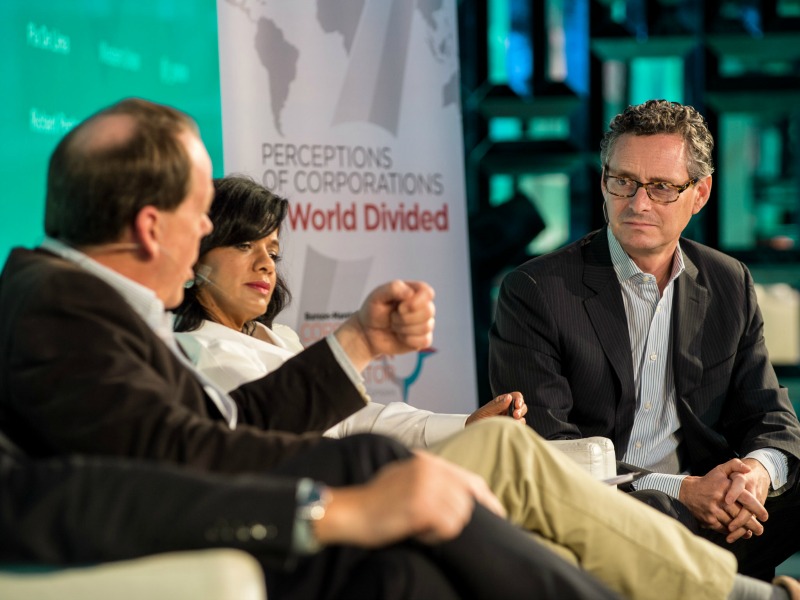Paul Holmes 29 Oct 2014 // 9:51PM GMT

MIAMI—In developed markets, corporations are increasingly viewed with suspicion, and need to address concerns that they do not act in the public interest, attendees at the third Global Public Relations Summit heard this morning. But while CEOs have a bully pulpit, they may not be the best people to close address that suspicion.
Billy Mann, president of Burson-Marsteller’s Penn Schoen Berland subsidiary, presented a study—conducted in partnership with CNBC—which found that six years after the global economic crisis, citizens in the developing world have a much more positive and optimistic view of corporations than those in the developed world.
In emerging markets, many people felt companies were acting more responsibly; in developed markets, majorities believe that little has changed. In emerging markets, the feeling was that strong companies were a positive influence, because of their role in job creation; in established markets, strong companies were a cause of concern, because their strength means “they don’t have to follow the rules.”
Perhaps most troubling, in the US, many people now consider companies as a “source of fear,” rather than as a “source of hope.” Said Mann, “There is a visceral concern in the US and Western Europe.”
If there is good news, it’s the citizens—in both emerging and developed markets—want to hear more from companies, on issues such as CSR, regulatory issues, treatment of employees, and even financial performance.
Mann’s advice: “First, don’t hunker down, communicate. Second, CEOs have a huge microphone, but have to fight their own negative image. And people want to hear about CSR, but it’s so much more than just a check-the-box item—they want to know who companies are and why they exist.”
The results did not come as a great surprise to the corporate panelists.
“On the good side, the opinion of corporations has improved since 2008 while political leadership has declined,” said Richard Poston, director of global public affairs for Telefonica. “As for the split between these two worlds, I think it’s very much a result of the business cycle, and in Europe massive unemployment and massive youth unemployment.”
There were concerns about the ability of the CEO to spend too much time talking about corporate responsibility at a time when shareholders are focused on the bottom line, and in some cases still worry that CSR is a distraction.
“When I was in the consultancy world, we tried to put all our eggs in the CEO basket,” said Pia de Lima, vice president, corporate communications, Americas and European Union for Western Union. “What we are trying to do at Western Union is find other people, credible subject matter experts in the company who can connect with consumers, or connect with regulators. The CEO has to focus on shareholders and the messages they want to hear; sometimes, CEOs worry about talking too much about issues such as corporate responsibility.”
Poston, meanwhile, made the point that the most effective means of communication—and reputation building—involved turning customers and other stakeholders into fans.


































.jpg)




.tmb-135x100.jpg)












